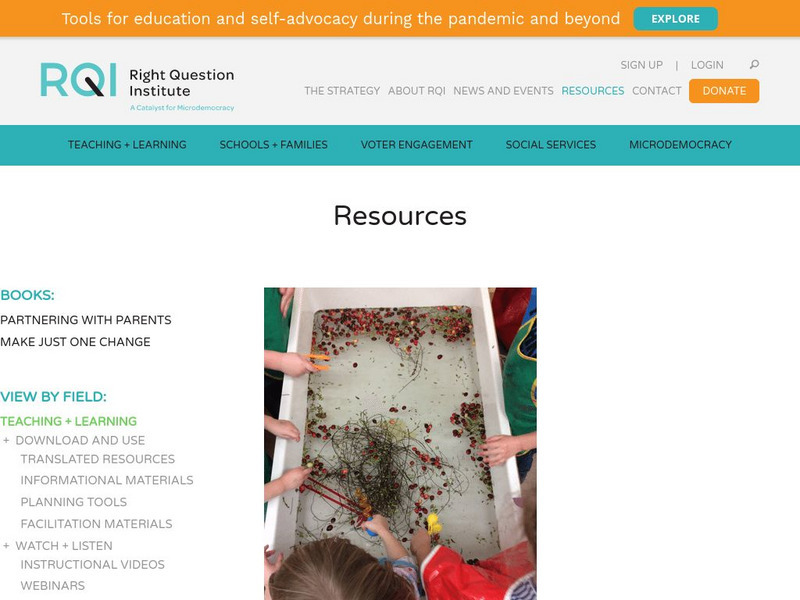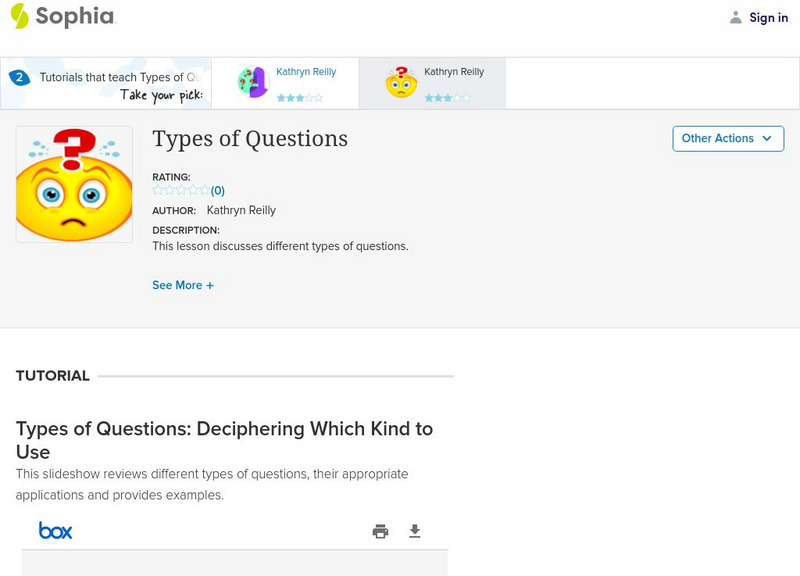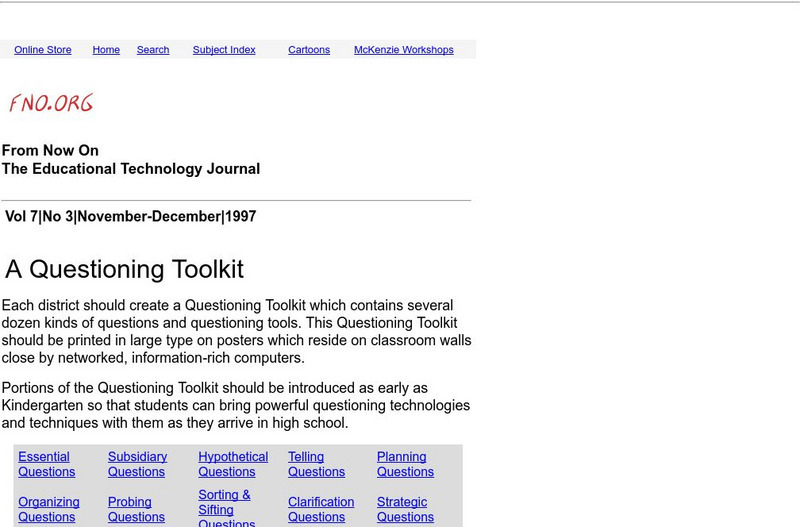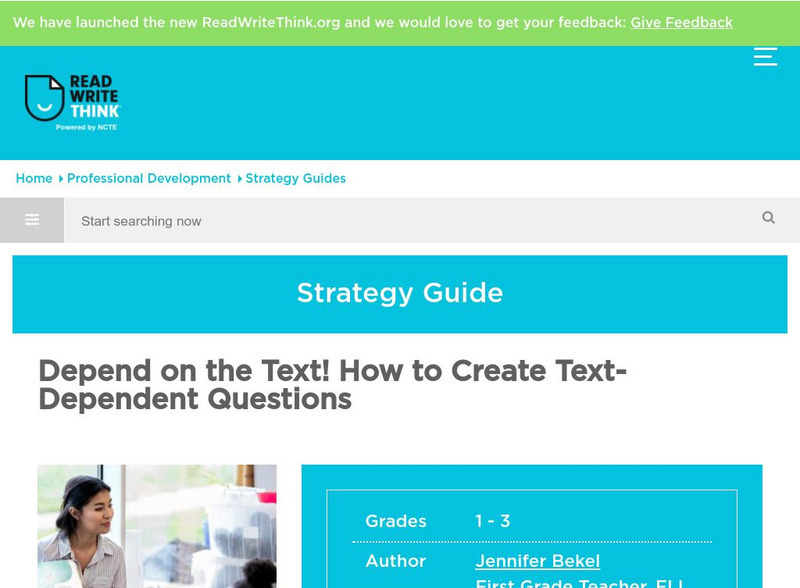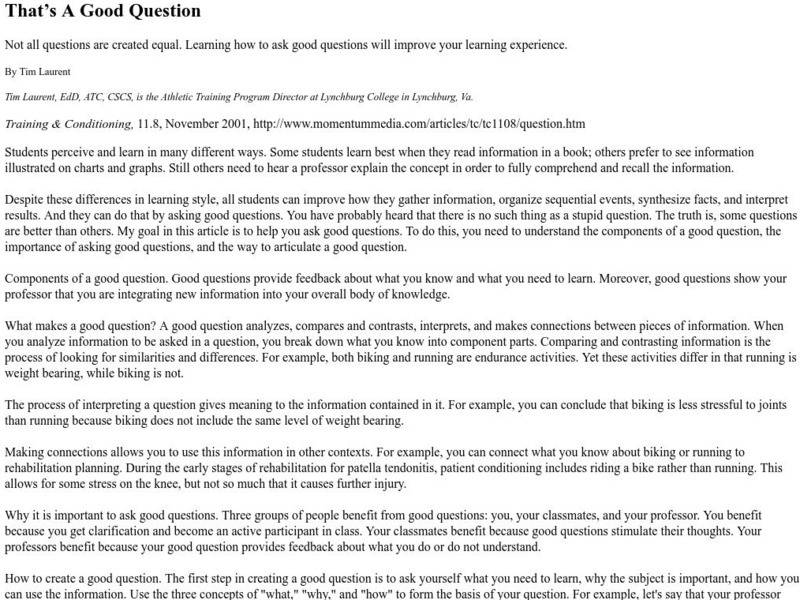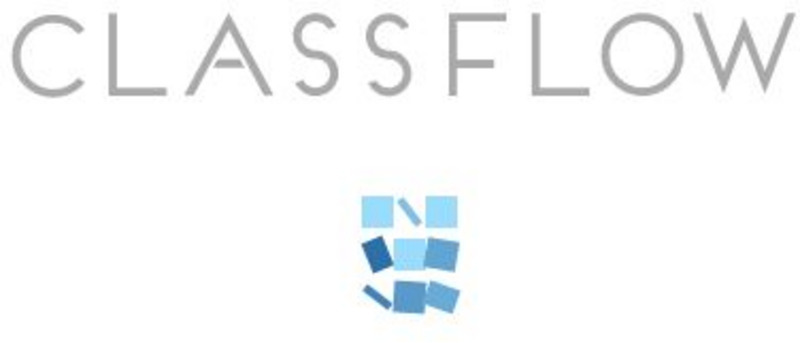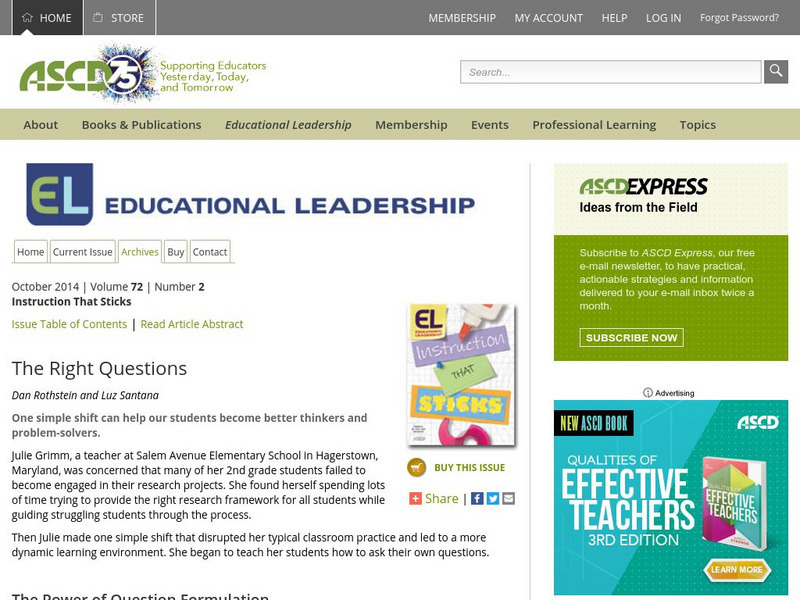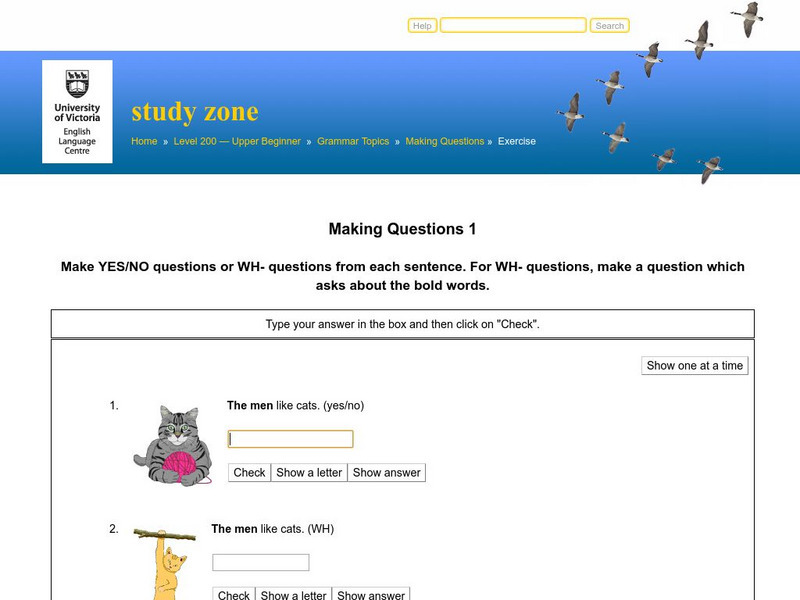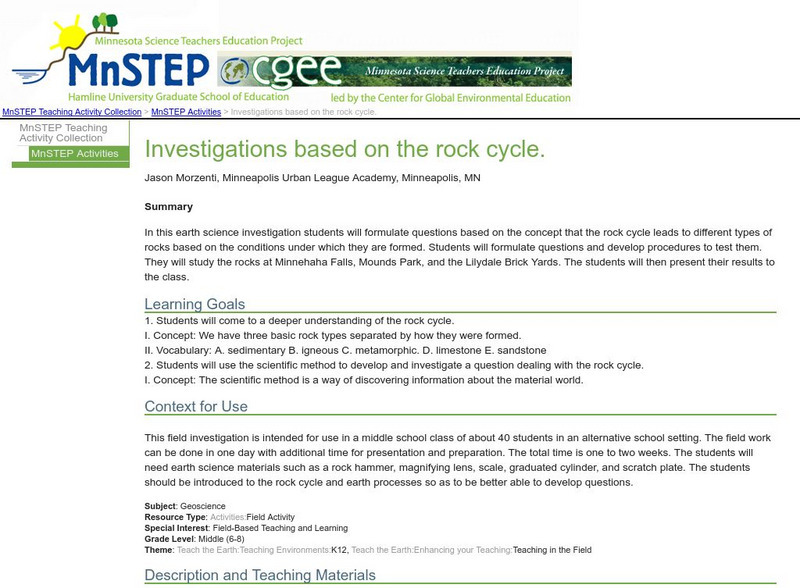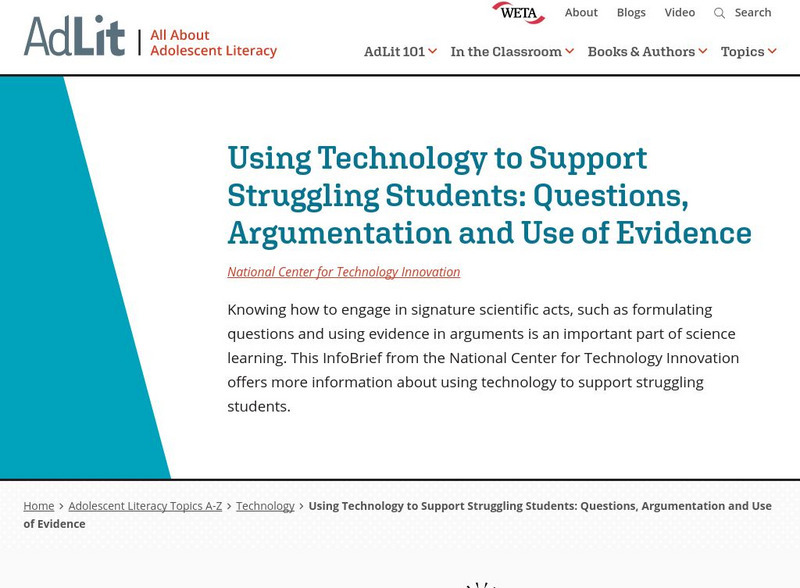EngageNY
TASC Transition Curriculum: Workshop 12
How can opinions slant facts? Workshop participants learn how to examine primary and secondary sources and identify the author's point of view. They also examine how visual art impacts the meaning and rhetoric of sources. Full of...
Other
Rqi: Three and Four Year Old Students Learning to Ask Their Own Questions
Three teachers describe how they used the Question Formulation Technique (QFT) in their classrooms. One teacher used it to teach a fall unit on cranberries, another teacher used this technique in a gingerbread holiday unit, and lastly, a...
Sophia Learning
Sophia: Types of Questions
This slideshow lesson focuses on types of questions; it provides background, purpose, and a list of the seven types of questions: rhetorical, direct or interrogative, indirect, open-ended, closed, and embedded. It provides background and...
ReadWriteThink
Read Write Think: Seuss and Silverstein: Posing Questions, Presenting Points
Contains plans for four lessons that ask young scholars to formulate critical thinking questions and lead class discussions about the issues raised in the books of Dr. Seuss and Shel Silverstein. In addition to objectives and standards,...
Other
Harvard College: Teaching Students to Ask Their Own Questions
An article, written by two Harvard scholars, provides six steps to help students formulate questions.
FNO Press
From Now On: A Questioning Toolkit
What exactly is a "questioning tool kit"? This resource provides techniques for asking essential questions, hypothetical questions, telling questions, planning questions and organizing questions.
ReadWriteThink
Read Write Think: Depend on the Text! How to Create Text Dependent Questions
This strategy guide focuses on writing text-dependent questions which require the student to reread the text to support their answers. It offers a list of what to do to create these questions that progress from establishing general...
Other
Questioning.org: The Question Mark
Jamie McKenzie's book, Beyond Technology: Questioning, Research and the Information Literate School, emphasizes the need to teach children to ask important questions, then research the answers, instead of just learning information...
Other
That's a Good Question
While the specific questions proposed here relate to physical therapy, the method of designing good questions that is taught can be used universally. The author teaches a pattern of asking "What" "Why" and "How" to develop successively...
Sophia Learning
Sophia: Asking Clarifying Questions: Lesson 2
At the end of this tutorial, the learner will be able to ask appropriate and effective questions to better understand a communication or situation. It is 2 of 3 in the series titled "Asking Clarifying Questions."
Other
Youth Learn: The Key to Engaging Students in Learning: Asking Good Questions
Explanation of several types of questions, and suggestions for helping students use good questioning techniques in inquiry-based learning. SL.9-10.1c Active Partic
Khan Academy
Khan Academy: Statistical Questions
In this exercise, students practice solving statistical questions. Students receive immediate feedback and have the opportunity to get hints and try questions repeatedly.
Other
Cleanapple.com: Teach Students How to Ask Their Own Questions
A blog entry where a teacher discusses how to guide students in learning how to ask the right questions. Includes a video of Noam Chomsky talking about the purpose of education, and a framework listing four steps students can follow in...
Other
U. Of Wisconsin: Formulating Statistical Questions and Collecting Data
This slideshow gives a detailed explanation of the characteristics of statistical questions and how they differ from other types of questions, the types of studies, and the methods for collecting data. It describes the case of Clever...
ClassFlow
Class Flow: Questions and Statements
[Free Registration/Login Required] Students will identify questions and statements (without the punctuation cue). They will also practice changing a question into a statement.
Association for Supervision and Curriculum Development (ASCD)
Ascd: The Right Questions
Learn the Question Formulation Technique to help students express their thinking without having to depend on teacher questioning to peak their curiosity. There are 6 steps and examples of use in the classroom.
TED Talks
Ted: Ted Ed: How Much Does a Video Weigh?
What color is a mirror? How much does a video weigh? Michael Stevens, creator of the popular educational YouTube channel Vsauce, spends his day asking quirky questions like these. In this talk he shows how asking the right questions can...
FNO Press
Fno.org: Inspired Investigations
An article at From Now On about how to help students do better research by changing the focus of research assignments and teaching students to ask essential questions. Some suggestions include using mind mapping, and using Inspiration to...
PBS
Pbs Teachers: Scientific American: Life's Little Questions: How Do Bees Fly?
Build a simple wind tunnel to help formulate and answer questions about how wind influences animals and plants, and then use it to explore why geese fly in formation and to examine why certain plants do not break in strong winds.
University of Victoria (Canada)
University of Victoria: Making Questions
This is targeted practice for question formulation; guided prompts ask the student to type question (yes-no or who, what, where, when). Students can then check the answer, ask for a hint, or see the answer.
Science Education Resource Center at Carleton College
Serc: Investigations Based on the Rock Cycle
In this lab investigation, students will study different types of rocks and formulate questions about the conditions under which they formed. This lab requires students to use the concepts learned about the rock cycle to develop a...
AdLit
Ad lit.org: Using Technology to Support Struggling Students
Knowing how to engage in signature scientific acts, such as formulating questions and using evidence in arguments is an important part of science learning. This InfoBrief from the National Center for Technology Innovation offers more...
Alabama Learning Exchange
Alex: Great Golly Graphs
This lesson plan asks students to create a survey project including graphs, questions, tables, and data analysis. It gives an assessment and ideas for remediation and extension as well as ways to manage behavior problems and reluctant...
Alabama Learning Exchange
Alex: State Jeopardy How Much Do You Know About My State?
This lesson is a distance learning collaborative project involving another school. Each school will do research on the other school's state and be able to answer questions about that state posed by the other school. Young scholars learn...

